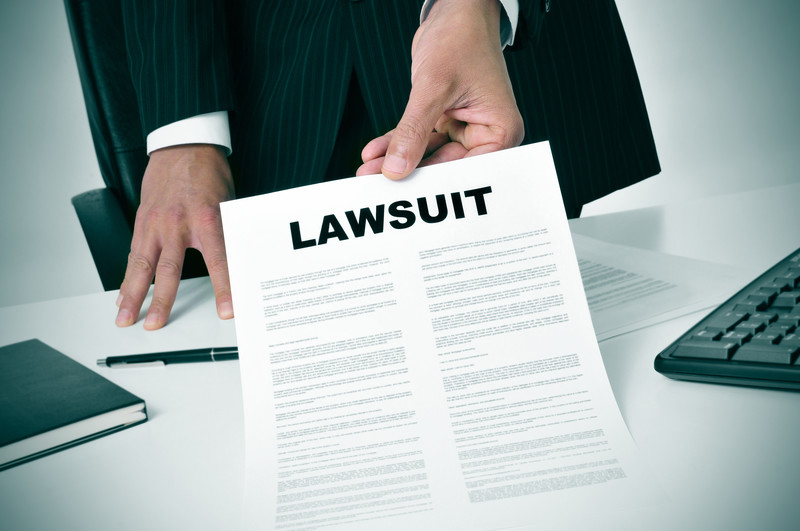The novel coronavirus COVID-19 outbreak has literally struck at the heart of global economy, and the United States has emerged as the worst-hit country. Though most of the workforce is confined to their homes as a result of the lockdown orders, workers in essential services have to attend to their duties. Unfortunately, many of them have been exposed to the virus and now many employers are facing legal challenges from affected workers. A major issue is that many employers have laid off or furloughed some or even all of their employees, which has triggered labor and employment lawsuits. An important question is whether workers’ compensation claims that hinge on medical record review to establish the illness/injury, are feasible. Perhaps not, for all categories of employees because workers’ compensation applies to an illness-based claim only if the illness arose in the course and scope of employment and was caused by conditions “peculiar” to the worker’s job. In this regard, claims placed by employees such as first responders and healthcare professionals in the frontline of duty are more likely to be covered by workers’ compensation laws. Such workers are at risk of greater and more frequent exposure to the virus than the general populace. This increases their likelihood of infection, which satisfies the “peculiarity” requirement.
Employees Who May Be Covered under Workers’ Compensation
As a medical review company assisting workers’ compensation lawyers, we understand that many states have already introduced or proposed legislation to cover COVID-19-related illnesses for these workers.
Here’s a look at the workers who may be covered by workers’ compensation:
- Doctors and nurses
- Healthcare technicians and other healthcare professionals
- EMTs and paramedics
- Pharmacists/pharmacy technicians
- Administrative workers in hospitals/healthcare facilities
- Firefighters
- Police officers
- 911 dispatchers
- Grocery store employees
- Food and agriculture workers
- Janitors, custodians, cleaning professionals
- Truck drivers
- Public health officials/researchers working on vaccines and cures for COVID-19
- Workers involved in manufacturing and transporting PPE, medical equipment and other important supplies
Types of Employment-related Lawsuits in the Wake of COVID-19
Now let us look at the COVID-19-related employment litigation risk for employers. An informative post on ogletree.com gives a list of court filings in the United States from late March 2020 through early May 2020, which highlights the types of employment lawsuits possible:
- Whistleblowing/retaliation/wrongful discharge: This type constitutes 40% of the claims, and comprises allegations of retaliation for objecting to unsafe working conditions and exposure to possible COVID-19 infected individuals in the workplace.
- Unsafe working conditions: This type includes lawsuits alleging that employers have failed to take appropriate measures to properly clean and sanitize workplaces; that unsafe workplaces caused sickness and/or death due to COVID-19; that employers failed to provide necessary personal protective equipment or PPE, or provide adequate sanitizing dispensers and handwashing areas; or failed to enforce social distancing protocols. 23% of lawsuits filed belong to this category.
- Disability discrimination: These filings (15%) are related to forced leaves of absence, failures to accommodate including denials of requests to work from home, or those related to taking leave due to the coronavirus concerns.
- Family and Medical Leave Act (FMLA)/Families First Coronavirus Response Act (FFCRA): Constituting 12% of the lawsuits filed, these are based on allegations of failure to provide leave related to COVID-19 and allegations of retaliation for utilizing the above-said leave.
- Worker Adjustment and Retraining Notification Act (WARN): These are filed alleging layoffs without required WARN notices.
- Wage and hour: Making up 6% of the filings, these are based on allegations of failure to pay for hours worked prior to business closures due to COVID-19 concerns.
- Consolidated Omnibus Budget Reconciliation Act (COBRA): Allegations of failures to provide COBRA notices and/or providing defective COBRA notices.
- Other assorted claims
How to Minimize Litigation Risk
How can employers minimize their exposure to COVID-19-related employment and workers’ compensation claims?
- Review the applicable workers’ compensation laws.
- Ensure all relevant policies are up to date – whether policies related to anti-discrimination, non-harassment, anti-retaliation, the FMLA, Emergency Paid Sick Leave Act and the Emergency Family and Medical Leave Expansion Act under the FFCRA (if lesser than 500 employees), reasonable accommodation issues, remote work and so on.
- Have a COVID-19 workplace safety plan and communicate the same to all employees. Ensure compliance with the plan, and investigate and address any reported concerns. Document the investigation process and outcome.
- Educate managers, supervisors, and human resources professionals regarding the relevant policies and steps to adopt in case a worker requests to utilize the policies and/or expresses concerns of noncompliance.
- When conducting health screenings, temperature checks or other tests, ensure compliance with social distancing requirements, confidentiality regarding any medical records created, and applicable privacy laws.
- Document all steps taken after an employee reports a positive or suspected COVID-19 diagnosis and comply with all state guidelines and CDC (Centers for Disease Control and Prevention) recommendations on quarantine timeframes and return-to-work parameters.
- If reducing the workforce, provide appropriate notices and ensure that selection criteria is non-discriminatory.
- If adjusting compensation, provide notice of changes as required by relevant state legislation.
- Stay abreast of new legislative enactments.
Employers must focus on increasing safety in the workplace during the coronavirus pandemic. Make sure to provide PPE for employees, and consider installing shields or screens at major points of contact such as reception. Enforce social distancing strictly and close/limit access to common areas – ensure that these areas are cleaned and sanitized thoroughly and frequently. It is best to adopt a work-from-home policy if possible. Another consideration is to arrange work such that days in the office can be alternated among groups of employees. Employers must maintain open communication to make sure that the workers know the various measures that are implemented to protect them. Employers can also implement screening tests such as temperature checks and coronavirus testing before allowing employees into the office. As any employment lawyer would advise, employers must be abreast with all federal, state and local laws related to family and medical leave, sick leave and other employee rights. To ensure maximum safety of employees, employers must also stay on top of all current and evolving guidelines from the CDC, the Department of Labor, OSHA and others.




